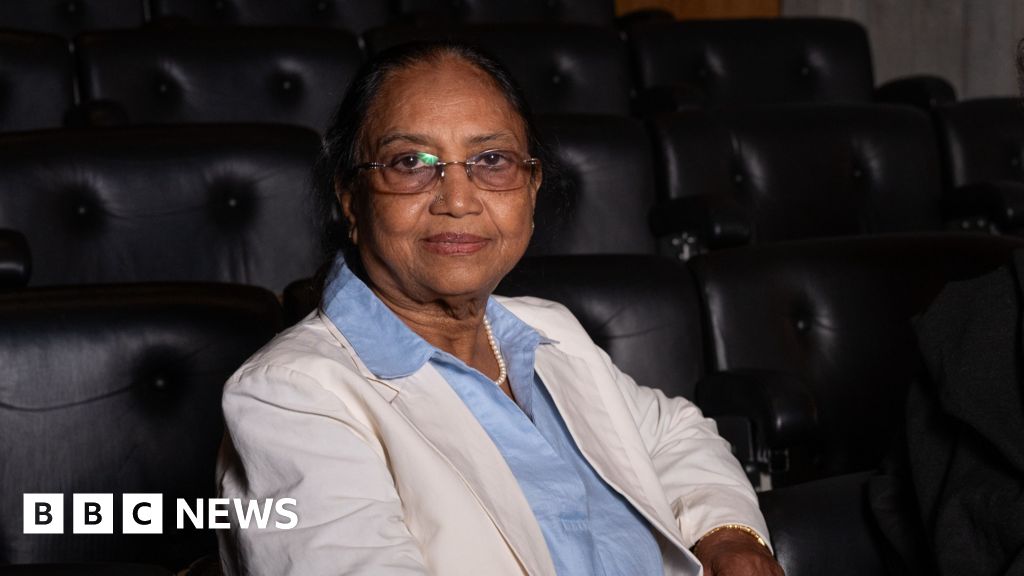ARTICLE AD BOX
Image source, Reuters/social media
Image caption,At least 2,000 people are now gathered at the Belarusian border with Poland
Polish Prime Minister Mateusz Morawiecki has accused Belarus of committing "terrorism" over its role in an escalating border row between the two countries.
"It's clear that what we are confronted with here is a demonstration of state terrorism," he told a news conference.
Thousands of migrants are stuck at the border in freezing weather, attempting to enter EU member Poland.
The EU has also accused Belarus's leader of provoking the crisis.
But Alexander Lukashenko, who won a largely discredited election last year, denies claims Belarus is sending people over the border in revenge for EU sanctions.
The migrants - mostly from the Middle East - are mainly young men but there are also women and children. They are camping in tents just inside Belarus, trapped between Polish guards on one side, and Belarusian guards on the other.
The situation has come to a head this week with repeated attempts to tear down the razor-wire fence erected on Poland's eastern frontier.
Mr Morawiecki made the comments at a news conference in Warsaw with European Council President Charles Michel. He said he believed the crisis was a result of Mr Lukashenko's "quiet revenge" for Poland's support of the Belarusian opposition.
Mr Michel said he had come to Warsaw to show the EU's solidarity with Poland. He said the use of men, women and children as tools to achieve political goals was "shameful and unacceptable".
Image source, Getty Images
Image caption,Aid agencies are only able to help migrants who successfully cross the border into Poland and get beyond the immediate zone
"Sanctions are on the table. We must now co-ordinate with member states to identify most efficient tools", he told the conference. "This hybrid attack against Poland and the EU must stop."
He said the EU must decide whether to fund fences by member states in the face of such crises, adding it was legally possible.
Meanwhile, German Chancellor Angela Merkel phoned Mr Putin on Wednesday, asking him to press Belarus to stop the "instrumentalisation of migrants", her spokesman said.
But Russia said on Wednesday it was "irresponsible" for Poland to blame Russia for the crisis. Foreign Minister Sergei Lavrov said the EU should provide financial support to Belarus to deal with migrants.
View from Poland's border area
Dozens of Polish police vehicles race to the village of Kuznica where up to 4,000 migrants are effectively trapped.
The area remains out of bounds for media and, crucially, aid agencies - much to their despair.
In September Nick Beake met the migrants freezing on the Belarus-Poland border
One man we contacted, an Iraqi Kurd, told us they'd endured another night in freezing conditions and asked us in exasperation what sort of life this was.
When I then asked what they were all doing for food, he said the Belarusians were providing supplies. But other migrants have also told us the Belarus security forces are also giving out wire-cutters to help break through the fence in places where Poland's numerous guards are thin on the ground.
The European Commission says Belarus enticed migrants with the false promise of easy entry to the EU as part of an "inhuman, gangster-style approach" and it has listed some 20 countries from which migrants have flown into Minsk, mainly on tourist visas.
Poland has been accused of pushing migrants back across the border into Belarus, contrary to international rules of asylum.
"Nobody is letting us get in anywhere, Belarus or Poland," said 33-year-old Shwan Kurd, who described arriving in Belarus at the start of November.
"There's no way to escape," he said. "Poland won't let us in. We are so hungry. There's no water or food here. There are little children, old men and women, and families."
Are you in the area? Have you been affected by what's been happening? You can get in touch by emailing haveyoursay@bbc.co.uk.
Please include a contact number if you are willing to speak to a BBC journalist. You can also get in touch in the following ways:
If you are reading this page and can't see the form you will need to visit the mobile version of the BBC website to submit your question or comment or you can email us at HaveYourSay@bbc.co.uk. Please include your name, age and location with any submission.

 3 years ago
62
3 years ago
62








 English (US) ·
English (US) ·